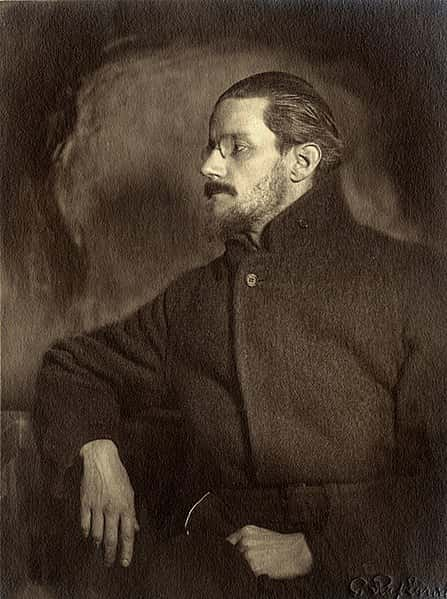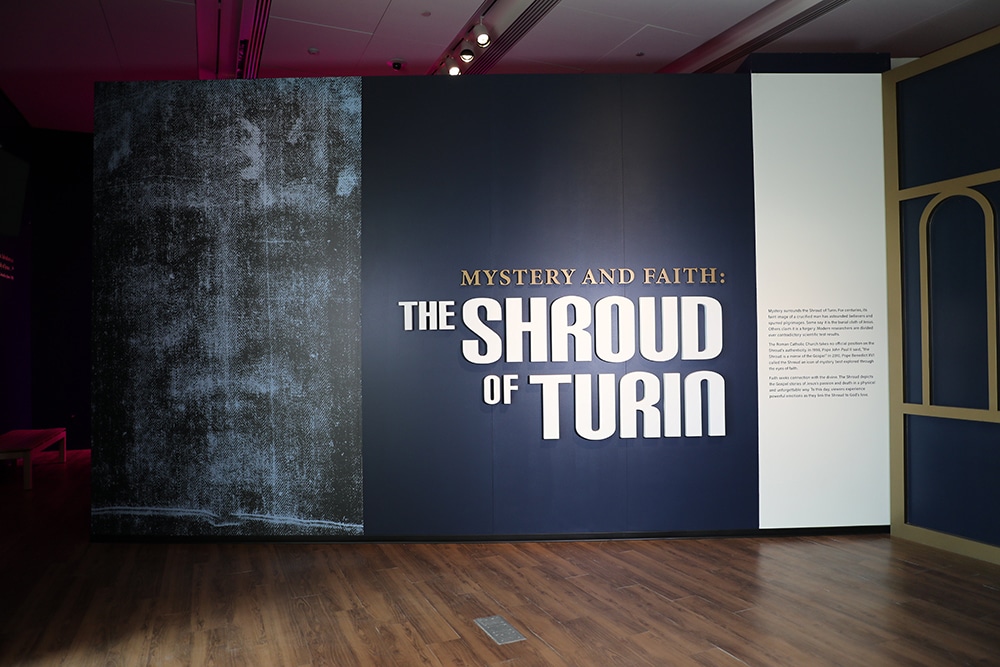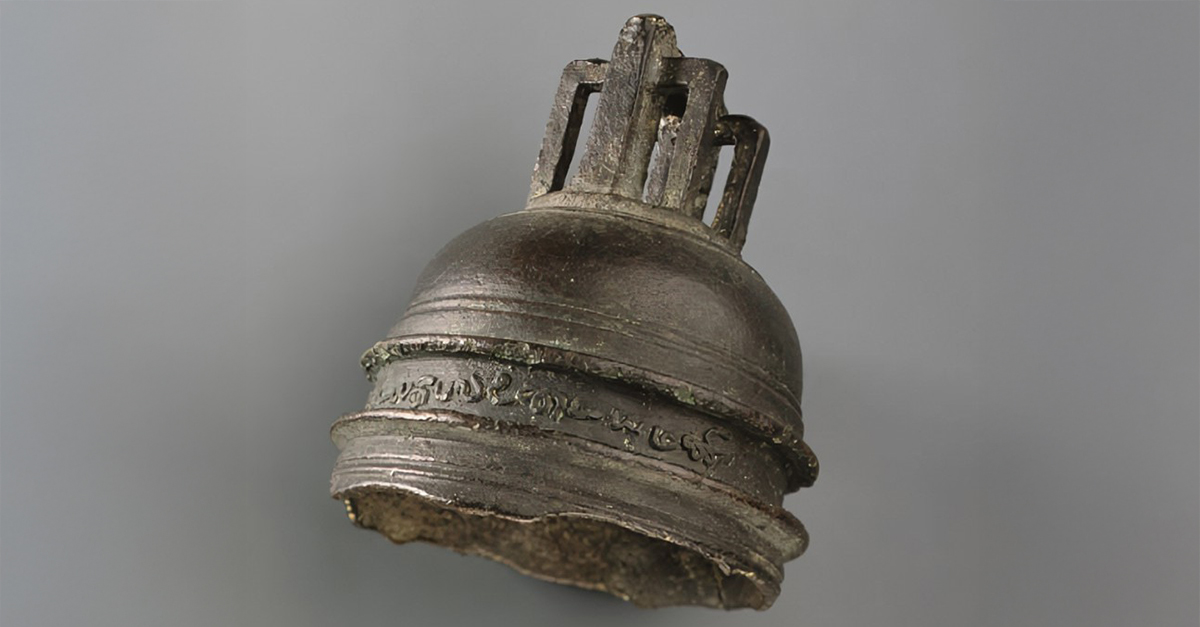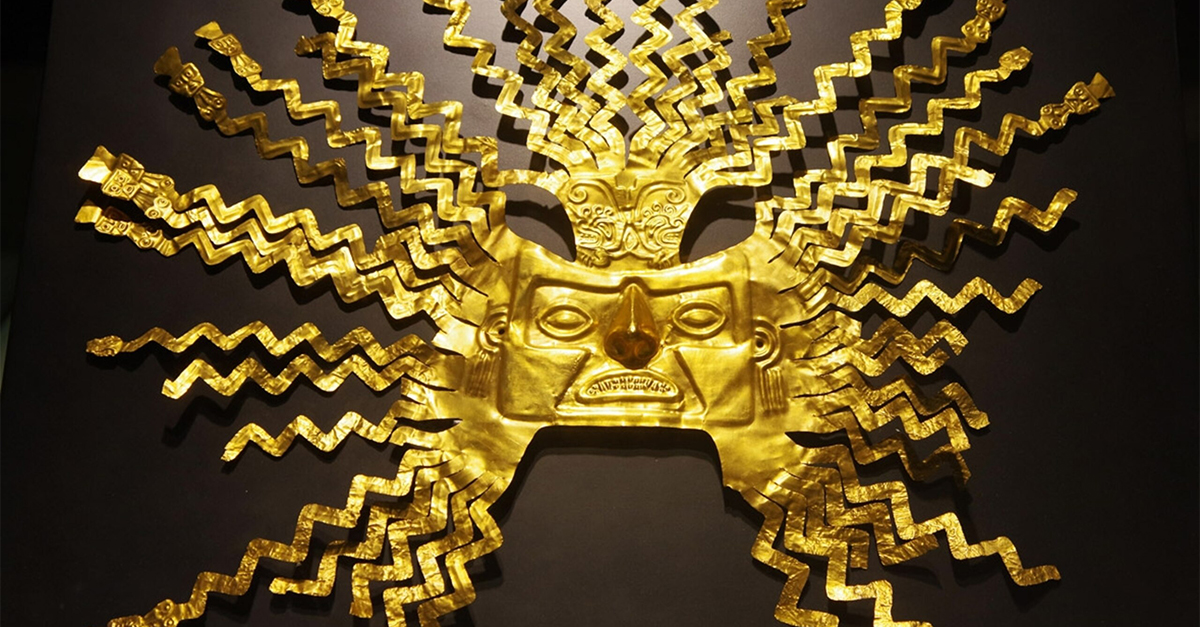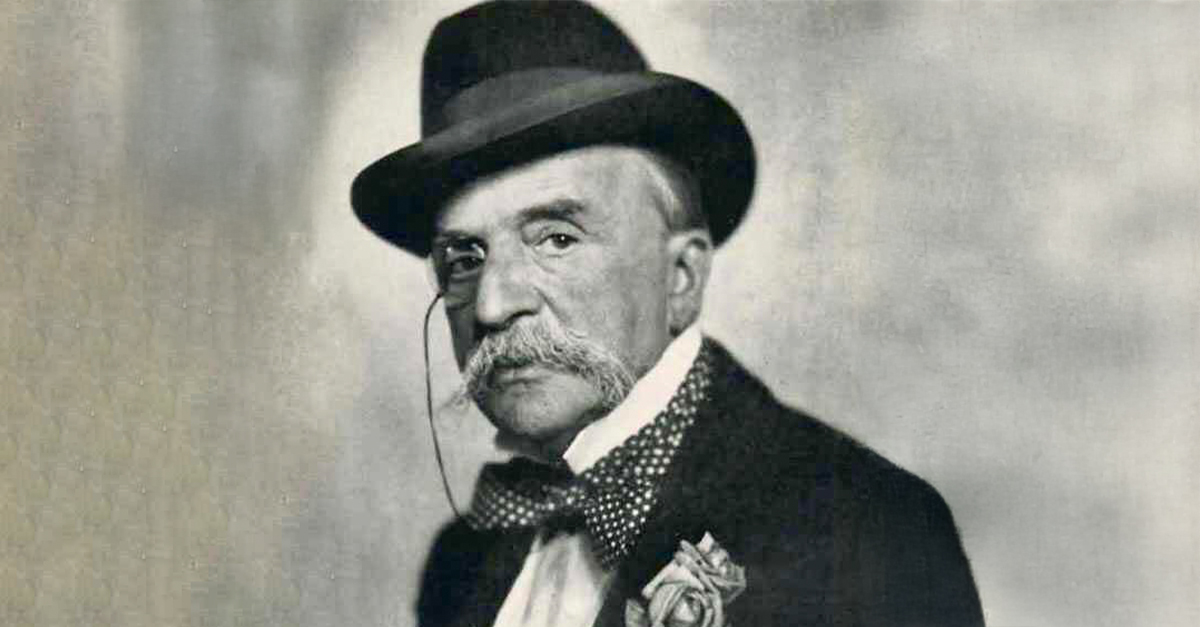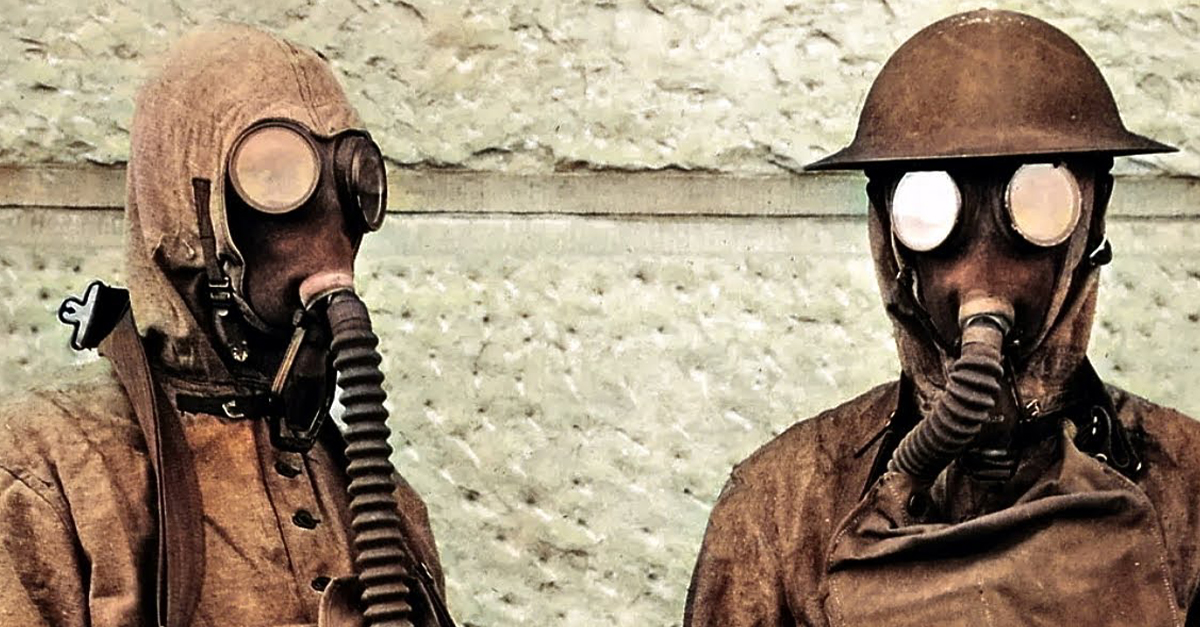At this point, the works of James Joyce mostly serve as a badge of cultural status. The man was a genius, but there aren’t too many people left that are going to spend the time to slog through all 730 of Ulysses’ jumbled pages. A Portrait of the Artist as a Young Man is used as a way for angsty university students to prove their literary-ness far more often than it’s enjoyed as recreational reading.
But while an almost too-obviously leafed through copy of Ulysses is still prominently portrayed on many a young intellectual’s bookshelf; while conspicuous quotes from Dubliners can still be overheard in university pubs from tables seating young boys who are (falsely) convinced they're impressing the young ladies beside them; while Joyce remains an author that is more often claimed to be enjoyed than actually enjoyed, there’s one Joyce book that nobody claims to have read. I don’t care how badly a young literati wants to prove their chops, no one would have the guts to try and say they’ve made it through Finnegans Wake. It is, without question, the most difficult book to read in the English language.
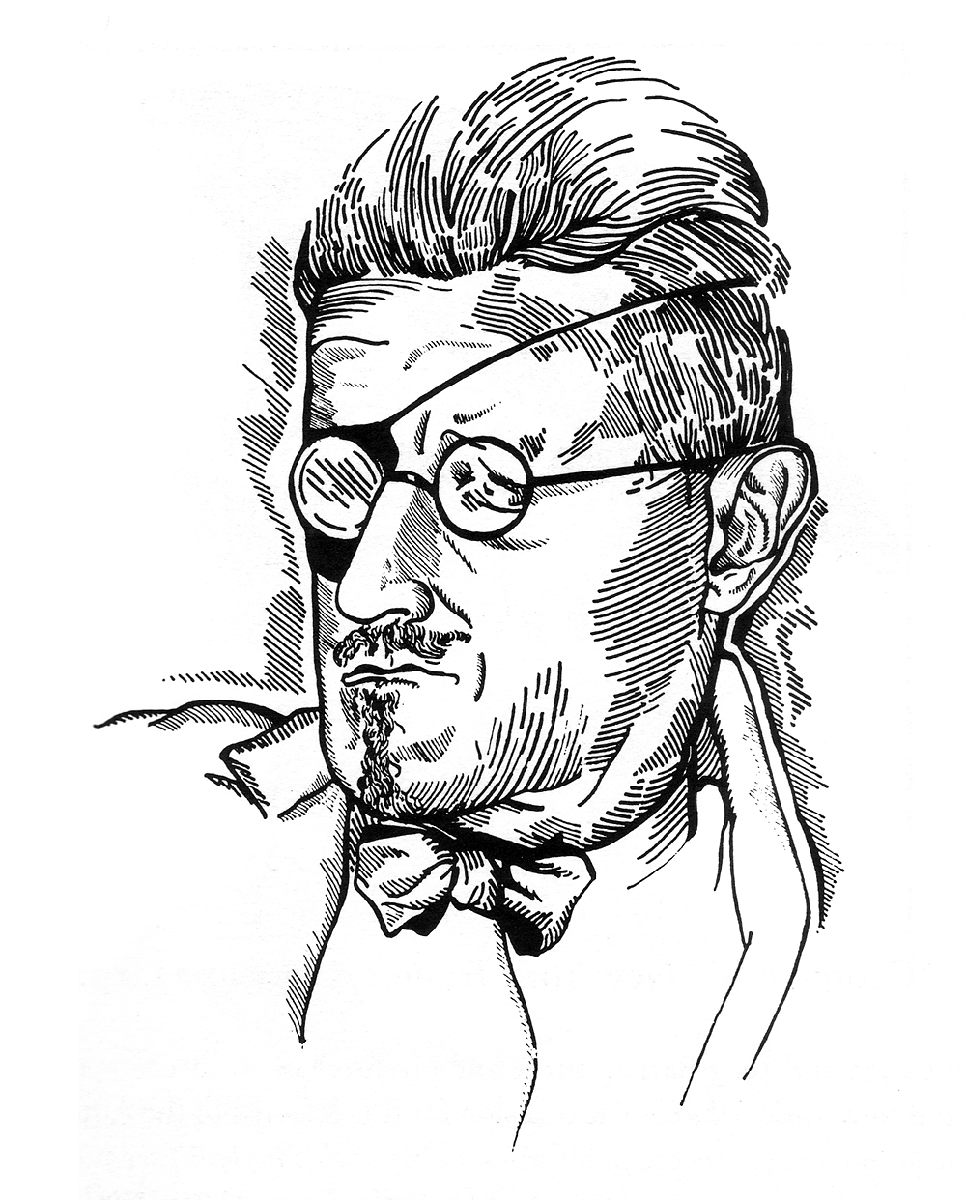 Wikimedia Commons A drawing of Joyce (with eyepatch) by Djuna Barnes from 1922, the year in which Joyce began the 17-year task of writing Finnegans Wake
Wikimedia Commons A drawing of Joyce (with eyepatch) by Djuna Barnes from 1922, the year in which Joyce began the 17-year task of writing Finnegans Wake
While Ulysses is undeniably a long, intimidating, and challenging book, at least the idea of finishing it is believable. Finnegans Wake is a different story. For any current or prospective students out there right now, I can tell you one thing for certain: if a hip young man casually brings up that he’s read Finnegans Wake, he is lying to you—in my experience at least, this delusion has been overwhelmingly masculine. Like I said, nobody reads Finnegans Wake. I know simply claiming that fact will inspire some people out there to prove me wrong; to become the rarest of rare souls who have managed to make it through Joyce’s final work. Don’t bother. Need a reason? Well, here’s the book’s first line:
“riverrun, past Eve and Adam's, from swerve of shore to bend 1 of bay, brings us by a commodius vicus of recirculation back to 2 Howth Castle and Environs.”
Here’s another, that I honestly just picked at random from the online version that Trent University has thanklessly made available online:
“He, praise 20 Saint Calembaurnus, make clean breastsack of goody girl now as 21 ever drank milksoep from a spoen, weedhearted boy of potter and 22 mudder, chip of old Flinn the Flinter, twig of the hider that tanned 23 him.”
Do you see what I’m saying? Ulysses is difficult, but at least it’s in English. At least it has characters and plot. Finnegans Wake is something else entirely. So why the heck did Joyce spend 17 years writing this nonsense? Well, it may shock you to hear this, but what you just read isn't actually nonsense. In fact, if you can get past the fact that it's utterly unreadable, Finnegans Wake is maybe the most impressive creative work in human history. It’s just that Joyce vastly overestimated the world’s ability to parse his genius.
When Wake was first teased the reaction was, unsurprisingly, negative. Many people came to the obvious conclusion and accused Joyce of writing a book of pure gibberish. Joyce was quick to point out that “if it were meaningless it could be written quickly without thought, without pains, without erudition; but I assure you that these 20 pages now before us [i.e. chapter I.8] cost me twelve hundred hours and an enormous expense of spirit.” A decent argument—nobody spends 17 years writing a complete novel of complete gobbledygook—but still, many were not impressed.
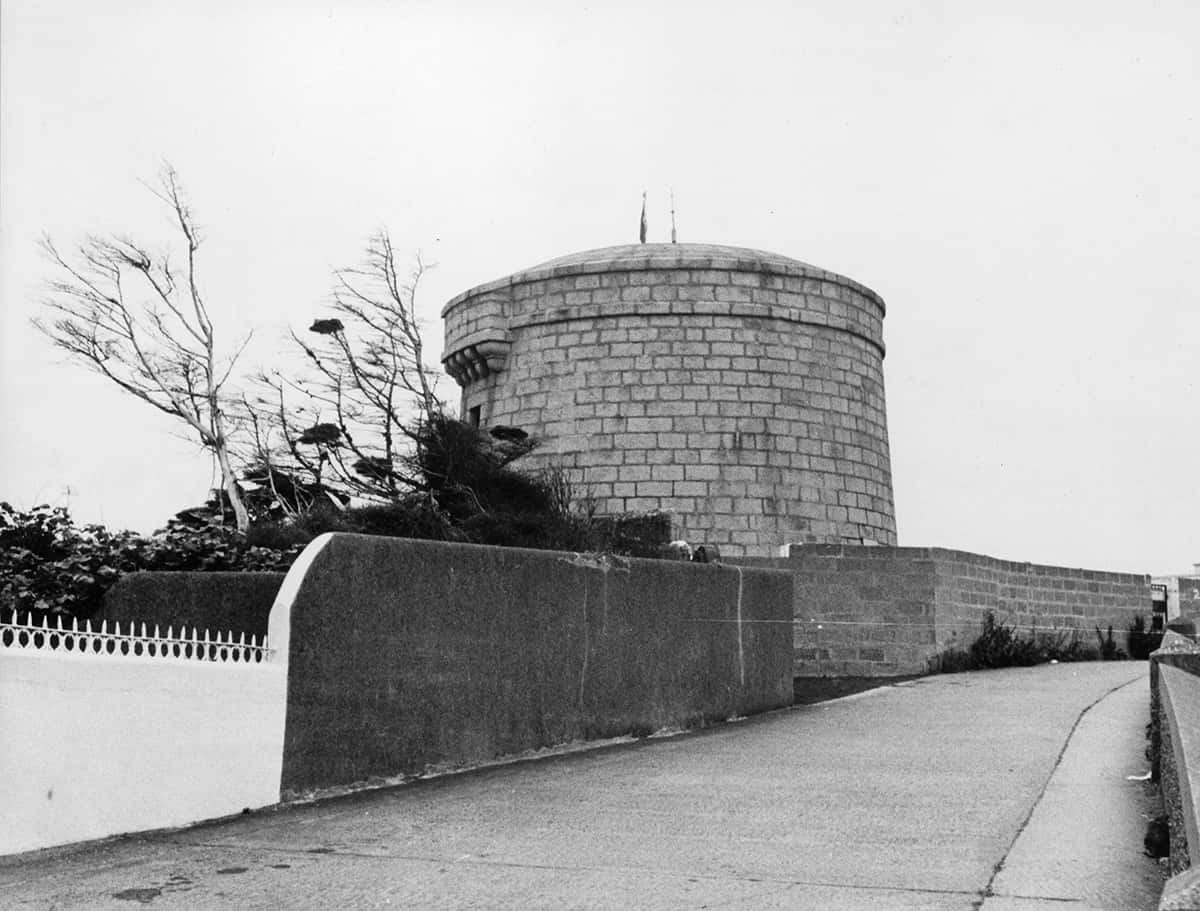 Getty Images July 1968: The Martello Tower at Sandycove in Dun Laoghaire, which is the location of the first scene in James Joyce's 'Ulysees'. The tower was bought by Irish architect Michael Scott and turned into a Joyce museum.
Getty Images July 1968: The Martello Tower at Sandycove in Dun Laoghaire, which is the location of the first scene in James Joyce's 'Ulysees'. The tower was bought by Irish architect Michael Scott and turned into a Joyce museum.
Other critics at least admitted Joyce’s book held meaning, but were frustrated by its unrelenting difficulty. H.G. Wells once told him: “You have turned your back on common men, on their elementary needs and their restricted time and intelligence [...] I ask: who the hell is this Joyce who demands so many waking hours of the few thousands I have still to live for a proper appreciation of his quirks and fancies and flashes of rendering?” Honestly, I must admit, Wells has a point here. Most novelists write books at least in the hope that somebody out there will be able to, you know, finish them. Evidently, this was not one of Joyce's major concerns.
Turns out, you can’t write the most unreadable book in history without raising a few eyebrows, but the reaction wasn't all negative. There's a reason we're still talking about Finnegans Wake today—the book attracts nearly as much awe and appreciation as scorn and frustration. It’s frustrating and confusing and opaque and bizarre, but its pages hide a truly remarkable creative work, unlike anything else in the history of literature.
While Finnegans Wake is not gibberish, one could be forgiven for thinking so, because Joyce decided to completely forgo any attempt at clarity for a writing style that offered limitless creative expression. He invented his own idiosyncratic dialect, which borrowed words from countless real languages and relied almost exclusively on puns and portmanteaus to give nearly every single word in the book’s 650+ pages multiple meanings. The title, which seems relatively straightforward, is a good example of what Joyce was trying to do with language in the book.
Joyce intended this book to be cyclical, a story that turns back on itself. A snake eating its own tail. He didn't simply put "Finnegan" in its title because it's a common Irish name. Like with the rest of his book, Joyce chose his words very, very carefully. In this case, the book's Ouroborean nature is hidden within that one word. It starts with fin, the French word for “end.” It also sounds similar to “begin again.” Finnegan. Fin, again. Finnegan, begin again, end and begin, again and again. This cycle is why the first sentence of the book looks so strange. If you noticed while reading that opening line above, the first letter was not capitalized. That wasn't an error, because the first sentence of the book is actually only the second half of a sentence. Where's the first half? I bet you can guess—it's the final line of the book.
"A way a lone a last a loved a long the..."
"...riverrun, past Eve and Adam's, from swerve of shore to bend 1 of bay, brings us by a commodius vicus of recirculation back to 2 Howth Castle and Environs."
Fin. Again.
And that's just one word. Joyce did this same absurd, lexical fudging in every paragraph, sentence, and word for hundreds of pages. And I’ve only talked about the easy words so far. Joyce also took it upon himself to include ten 100-letter words that have affectionately come to be known as “thunderclaps,” because it’s believed the first of them was intended to simulate the sound of thunder. They look like this:
“bababadalgharaghtakamminarronnkonnbronntonnerronntuonnthunntrovarrhounawnskawntoohoohoordenenthurnuk.”
“Perkodhuskurunbarggruauyagokgorlayorgromgremmitghundhurthrumathunaradidillifaititillibumullunukkunun.”
…umm, could you please use the word in a sentence?
What we’re left with is the literary equivalent of quicksand. Trying to make sense of Finnegans Wake feels almost futile. It can take days to try and parse just one sentence, and even then, it’s hard to feel like you haven’t missed half of what Joyce meant.
This is an infinitely complex—and some would argue utterly absurd—way of writing a novel. It’s no surprise that it took Joyce 17 years to finish the thing, finally publishing it in 1939, just two years before his death. The book, it would seem, took everything he had left. But even today, nearly a century since it was published, we still barely know what the book is about. We know that it features the Earwicker family, with the father HCE and the mother ALP. Their children are Shem the Penman, Shaun the Postman, and Issy, though all of these characters go by many, many different names in the book. As far as anyone can tell, a rumor has gone around about HCE, and his wife tries to clear his name while his sons try to take his place. Most people agree on those aspects, but almost everything else about the book is up for debate.
That doesn’t exactly sound like Harry Potter, does it? With such an obscure and obfuscated plot, with such impossible language, and with the sheer length of the book, it’s a perfectly fair question to ask: “Why would anyone ever want to read this thing?” Well, you’re in luck. You don’t have to read it. Crusty old literature scholars have been doing that for years. For me, Finnegans Wake is a book that is far more fun to read about than it is to actually read. Just knowing that James Joyce managed to write, and actually finish, no less, a 650-page book when every sentence must have taken hours upon hours to create, is truly a wonder. Any small hints at the genius held within its pages make it more exciting that it even exists at all.
That Joyce managed to hide ridiculous puns and visual jokes deep in a book that he must have known almost nobody would be able to read is absolutely hilarious. One scene of the book that people generally agree on features Shem helping Shaun with math homework. Shem draws out a complex mathematical diagram featuring intersecting circles, triangles, and obscure symbols, and it takes his brother a very long time before realizing Shem is messing with him, and that the “diagram” is actually a drawing of a vagina. That is funny, but someone would probably have to read that passage 1000 times before they ever got the joke—which makes it even funnier.
There’s a reason that there are entire academic papers devoted mere paragraphs of Finnegan’s Wake. Why A Clockwork Orange novelist Anthony Burgess called it “one of the few books of the world that can make us laugh aloud on nearly every page.” It’s completely inaccessible to 99% of the reading public, but just because I’m not smart enough to understand something, doesn’t mean I can’t appreciate it—albeit with a little guidance. So no, I’m never going to read Finnegans Wake, but I’m never going to explore the universe either. That doesn’t mean I can’t stare up into the sky and be awed by the sheer scope of it. I know a little about the universe, and that only gives me more respect for what else might be out there, completely comfortable with the fact I’ll never discover it. I look at Finnegans Wake the same way.
I know that James Joyce wrote a stupid sex joke into the middle of the book, even if I had to have it pointed out to me. I know what it sounded like when the author himself read his words aloud and I can appreciate their aesthetic quality, even if I have no clue what he’s saying. I know that the last sentence cuts off midway and that the first sentence is the continuation, as if Joyce not only intended someone to finish his book, but to then go back to the beginning and keep reading. A dream at the edge of our understanding, forever recurring. Finnegan, Fin Again, End, Begin, Again. Just knowing that this book was created, that the human mind has the potential to create something of this scope, is good enough for me.


